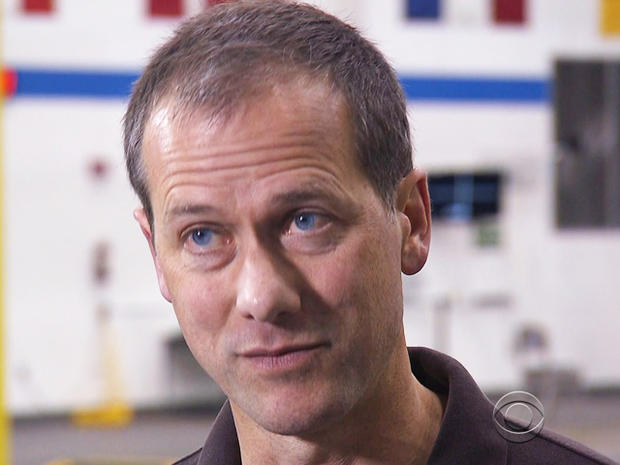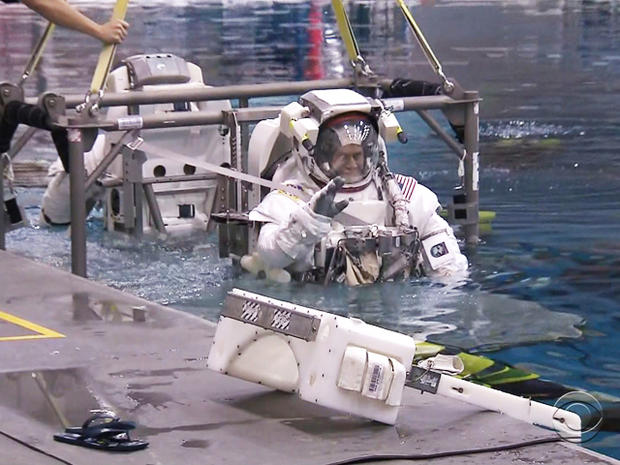How astronauts combat debilitating effects of space
HOUSTON -- Astronaut Michael Barratt spent more than six months on the International Space Station, making him well qualified for his current job as manager of NASA's Human Research Program, studying the effects of space on the human body.
Barratt, a medical doctor, says a more serious problem is that months of zero gravity can leave bones brittle and muscles weak. Fortunately, there's a simple solution: vigorous exercise that offsets the loss of muscle and bone mass.
"It feels just like you're in the gym, and we work on squats very hard, as well as upper body work," says astronaut Tom Marshburn, who got through four strenuous space walks with the help of exercise.
"When I finished my five-month mission, I was able to stand up, walk a straight line, and it's quite an accomplishment," Marshburn says. "We had not been able to do that before."
When not in space, Marshburn works on the strength and dexterity needed for space walks in a giant pool at the Johnson Space Center in Houston. But some effects of space on the human body don't have simple answers.
"It's safe to say that radiation is our biggest concern," Barratt says. "Unfortunately, the space flight environment is a radiation environment."
Flying to Mars with today's technology could take six months.
"Well, what if we could fly there in a couple of months, a few weeks? That helps our radiation profile tremendously," Barratt says.
That kind of speed, though, is a long way off.
But for astronauts, the lure of space travel overwhelms medical concerns.
Asked if he would go to Mars if he had the opportunity, Barratt snaps his fingers and replies, "Like that."
A manned mission to the Red Planet won't happen for more than 15 years, but at the Johnson Space Center, they're already waiting in line.

